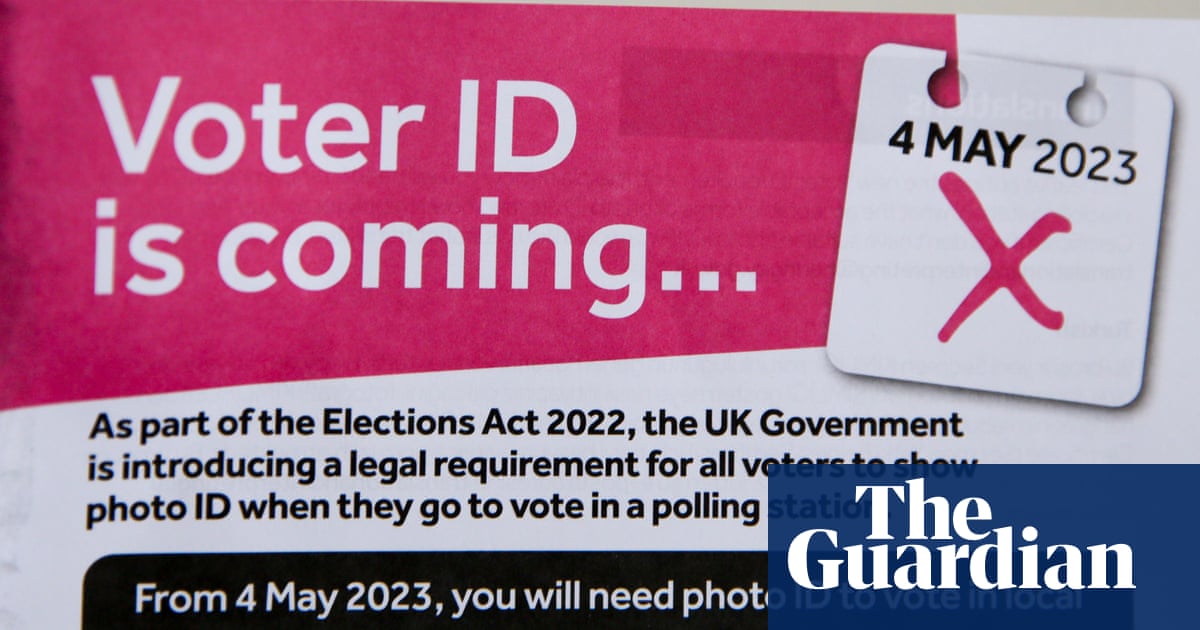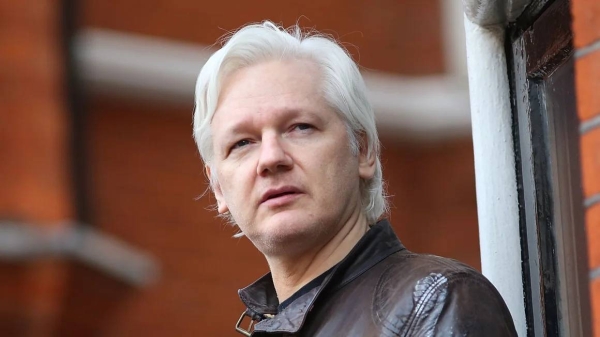
Pilot schemes requiring voters to produce photo ID at polling stations disenfranchise those who do not have or cannot find their documents and alienate people from the democratic process, the court of appeal has been told.
The claim has been made by Neil Coughlan, a community activist from Braintree in Essex, who argues that voter fraud is extremely rare and the electoral trials are unlawful.
In a hearing conducted remotely on Thursday, lawyers for Coughlan told Lord Justice Underhill, Lord Justice Mccombe and Lord Justice Green that many people did not have the type of photo ID required at a few polling stations in last May’s local elections.
Anthony Peto QC, appearing for Coughlan, said the scheme was “a major constitutional change in the exercise of a fundamental democratic right”.
He said Coughlan lives in a part of Essex that “he describes as run-down and neglected”. Peto added: “He feels that this [scheme] will serve to disenfranchise the poor who already feel [ignored] and where many people do not have photo IDs.”
There was little evidence of voter fraud and personation taking place in the UK outside of Northern Ireland, the court was told. A survey last year found that more than 99% of polling station officials said they had no suspicions of anyone impersonating someone else in order to steal their vote.
Peto said ministerial orders under which the pilot schemes were given the go-ahead were not made legitimately under the Representation of the People Act 2000.
Section 10 of the act gives a minister power to introduce pilots “as regards when, where and how voting at elections is to take place”, the court was told.
“By empowering the minister to make changes ‘as regards how voting is to take place’,” the court was told, “parliament cannot have intended to empower ministers effectively to disenfranchise a section of legitimate voters who would be unable to find and produce specified documents or who would be unable to satisfy local officials on the spot as to their entitlement to vote”.
Coughlan is appealing against the high court’s rejection of his claim. Lawyers for the Cabinet Office told the appeal court judges that the purpose of the electoral trials was to discover what problems might arise and that they were lawful.
Before the hearing, Coughlan, who has raised money for his case through a crowdfunding website, said: “Hundreds of individuals were denied their vote in last year’s local elections because of these voter ID pilots … I am determined to persevere with my case arguing that the pilots were unlawful as they needed an act of parliament to be introduced.
“As the government moves to bring forward legislation to introduce voter ID requirements nationally at general elections, it is all the more important to establish whether these pilots were lawful.
“As the Windrush scandal showed, many British citizens do not have official documentation and in fact some 7.5% of the electorate do not possess photo ID. Requiring individuals to produce identity documents is going to deprive legitimate members of the electorate of the vote and I believe it will disproportionately affect the poor and marginalised members of our society.”
Tessa Gregory, a solicitor at the law firm Leigh Day who represents Coughlan, said: “Mr Coughlan contends that by giving ministers the power to make changes as to ‘how’ voting takes place, parliament cannot have intended them to disenfranchise those voters who cannot produce the correct form of ID at the polling station.
“In his legal case he argues that restricting people’s right to vote in local elections by requiring them to produce ID is an important constitutional matter that has to be expressly authorised by parliament.”
The hearing continues. Judgment is expected to be reserved.












